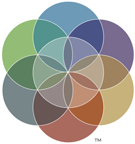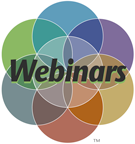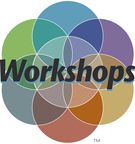To Die in Peace: Our Rights of Passage
Learn how to advocate medically | Increase our likelihood of experiencing a peaceful demise
April 2018: The Promised Landing: A Gateway to Peaceful Dyingis published and available. See this site’s books pages for more. Events local to Boulder, Colorado are now being offered. Contact me for other appearances.

Although the universe owes us nothing, our society owes us the opportunity to die in peace — by not imposing peace-less-ness on our last months, weeks, and days. Protecting ourselves from this tendency requires a lot of knowledge and resolve.
Medicine’s best guidance is to fill out directives, assign a surrogate decision-maker, and bring both along with you at your moment of greatest vulnerability and need. Popular guidance suggests engaging in contemplative practice—either formally through Buddhism or informally through secular sage-ing. Neither eliminate the presence of powerful personal, cultural, and medical impediments to peaceful dying. Practical, everyday obstacles can and do put the kibosh on peaceful dying. Overcoming them requires us to identify, assess, and anticipate these obstacles.
These programs ‘unpack’, explain, and offer guidance to increase our likelihood of dying in peace. I offer different program types: a multipart webinar series, and two- and six-hour workshops. Each are uniquely useful; longer sessions offer more depth. The webinar series goes fairly deep, and the full-day seminar goes the distance for people with corresponding interest and capacity.
Succumbing to any of these obstacles can result in profoundly negative consequences—which we experience as shocking and harmful, turning a hoped-for peaceful death into a needlessly painful affair with bitter memories for survivors.
My patient-family experienced a set of obastacles obstacles twice—during each of my parents’ terminal hospitalizations (their medical courses were so different that even though we experienced the same type of problems each time, we hadn’t enough in-hospital experience to anticipate them the second time around). I uncovered a sixth obstacle as I continued musing about how difficult it seemed to discuss dying and death with an inadequate vocabulary. The seventh obstacle occurred to me while reflecting on the imbalance regarding our disclosure, via living wills (as medicine asks of us), compared to medicine’s lack of reciprocity—an imbalance that’s hidden in plain sight in the medical marketplace.
Here are the prevalent everyday obstacles to dying in peace. These obstacles originate both within us and within the medical system that has shaped the end of life since the mid-twentieth century:
1. Difficulty distinguishing among dying situations
2. Trouble determining when enough is enough
3. Over-reliance on advance directives
4. Exposure to medical snafus (misadventures and/or errors)
5. Ignorance regarding life support matters including systemic overrides
6. Inability to advocate medically for a loved one or oneself
7. The Opaque Dying Marketplace
For an expanded look at these obstacles see this page’s next tab, The Obstacles.
These programs are also directly applicable to managing any hospitalization as a patient or as a medical proxy for your loved one.
April 2018: The Promised Landing: A Gateway to Peaceful Dyingis published and available. See this site’s books pages for more. Events local to Boulder, Colorado are now being offered. Contact me for other appearances.
The Prevalent Everyday Obstacles to Dying in Peace
Obstacle 1 Difficulty distinguishing among dying situations This obstacle exists because adequate language to talk about dying situations hasn’t—until I identified and named seventeen dying situations ahead of all of us here in the 21st century. We typically say we want to die at home, mentally setting that scenario against dying in an intensive care unit. That oversimplification ignores the range of dying situations existing between these extremes. Addressing this will forever change how you conceptualize and forecast the end of life. Exploring this obstacle is a 2-hour participatory workshop session.
Obstacle 2 Trouble determining when enough is enough This obstacle is personal; addressing it pertains to our past experiences and future worldview. How we asses it lays the groundwork for and sets the initial trajectory of our end-of-life glidepath—over the course of our last quarter of life.
Obstacle 3 Over-reliance on advance directives This obstacle is both personal and systemic; addressing it requires a look at a wide range of advance directives including some you probably aren’t aware of. Executing a living will and assigning a medical proxy—a challenging and important step—represents a fractional aspect of the advance directive scene; a full suite of directives includes approximately 10 different documents that I know of. The point is to create the broadest safety net under oneself as is potentially possible. Even so, that net may not be as tightly woven as we would like to think…
Obstacle 4 Exposure to medical snafus (misadventures and/or errors) This obstacle is primarily systemic and partially personal; addressing it requires that we understand medical realities and examine our own medical and life goals. Assessing this obstacle orients us toward obtaining the right information by which to better evaluate treatment risk/benefit ratios, and to issue—or withhold—truly and adequately informed consent.
Obstacle 5 Ignorance regarding life support matters including systemic overrides This obstacle is hugely important, touching multiple settings and every serious medical situation. This gnarly scene is rarely well addressed let alone comprehensively covered. The application of life support technology and procedures is the core of our end-of-life conundrum, when we want to be right yet often end up painfully wrong. Applying life support is our systemic default; its efficacy is misunderstood, its risks generally not disclosed, its ethics muddled, and the number of situational and jurisdictional overrides to our directives against life support is alarming. We will pick this bone clean to the extent that each program format’s time allows.
Obstacle 6 Inability to advocate medically for a loved one or oneself As with life support matters, this obstacle is enormous. Learning how to advocate medically requires both significant study and real-world experience dealing with aspects small and large, unfolding both quickly and slowly. To its credit, medicine tells us to bring an advocate with us or to act as an advocate for our loved one. But it doesn’t say why (too scary) or much about how (too involved). We’ll explore the nature of successful advocacy—prepare to be newly or re-oriented. We’ll examine example situations and role-play one. I’ll point you to a ton of resources to start you on the path of learning how to advocate medically.
Obstacle 7 The Opaque Dying Marketplace This obstacle is systemic; addressing it will change your outlook regarding what medicine asks of us—and what we ought to, and must, ask of medicine. It addresses the subtle yet endemic need for water-we-swim-in paradigm change.
April 2018: The Promised Landing: A Gateway to Peaceful Dyingis published and available. See this site’s books pages for more. Events local to Boulder, Colorado are now being offered. Contact me for other appearances.

Identifying, assessing, and learning what steps to take to overcome deadly obstacles to peaceful dying is an involved topic. Axiom Action’s 3-part webinar series breaks it all down within several time-manageable sessions. Enrollment is a la carte with no multiple signup obligation—although the series proceeds in sequence and I recommend participating in all three sessions. In terms of information provided and depth gone to, the webinar series sits between the short workshops and the full-day seminar. These sessions do go deep; be prepared to learn a lot and receive uniquely valuable guidance.
This program is also directly applicable to managing any hospitalization as a patient or as a medical proxy for your loved one.
To enroll, see this page’s Schedule | Signup tab. For personal notifications complete the email signup form
(you’ll also immediately obtain key definitions upon which to base your future engagement as a patient or medical proxy).
Session 1: Our Dying Territory
Definitions New Terms of Engagement
Obstacle 1 Difficulty distinguishing among dying situations
Session 2:
Obstacle 2 Trouble determining when enough is enough
Obstacle 3 Over-reliance on advance directives
Obstacle 4 Exposure to medical snafus (misadventures and/or errors)
Obstacle 5 Ignorance regarding life support matters including systemic overrides
Session 3:
Obstacle 6 Inability to advocate for a loved one or oneself
Obstacle 7 The Opaque Dying Marketplace
WrapUp Questions and discussion of all seven obstacles
Sessions are directly applicable to managing any hospitalization as either a patient or a proxy for your loved one.
April 2018: The Promised Landing: A Gateway to Peaceful Dyingis published and available. See this site’s books pages for more. Events local to Boulder, Colorado are now being offered. Contact me for other appearances.

Workshops can be brought to your small group or organization, and offer the most informative guidance in the least amount of time as is possible to provide.
Sessions to be announced. To be notified personally when they are, sign up using the blue email signup form to the right (you’ll also immediately obtain key definitions upon which to base your future engagement as a patient or medical proxy).
April 2018: The Promised Landing: A Gateway to Peaceful Dyingis published and available. See this site’s books pages for more. Events local to Boulder, Colorado are now being offered. Contact me for other appearances.

Axiom Action offers a full-day To Die in Peace: Our Rights of Passage seminar, providing ample time to go deeply into each obstacle. We’ll fully assess each obstacle and begin formulating an action plan for mitigating the seven prevalent obstacles to dying in peace. Depth distinguishes this seminar from the workshops (and even the webinar series). The six active-hour day offers the time to go thoroughly deep. It’s a tough set of topics to focus on in one sitting. If you, like me, become energized by untangling gnarly situations and acquiring understanding, tools, and identifying resources with which to begin learning how to orient yourself to increase your likelihood of peaceful dying, and/or to act effectively as a medical proxy, then this is the best session I know of to accomplish those goals. It’s possible that any one of us might shed a tear or two but that will not preclude our otherwise clear-eyed, day-long focus on the obstacles.
Please be sure that you possess enough interest, spiritual fortitude, mental capacity, and emotional grit before signing up for this seminar. What helps me to provide all this is that exploring matters related to death and dying, well in advance (or, in my case, 10 years after my parents’ crummy hospitalized demises) does not directly contain the emotional charge that living through a demise obviously does. But I’ve been exposed to and untangling these somber-to-outrageous-to absurd aspects of how we die today for a decade. If your exposure to these will be fresh you may be emotionally processing input as we proceed among the obstacles from identification to assessment to solution-orientation.
While covering all 7 obstacles, we will range at length over two of the most significant that trip us up (numbers 3 and 5 in this program’s hierarchy):
- Ignorance regarding life support matters including systemic overrides
- Inability to advocate medically for a loved one or oneself
As people needing medical attention, as medical proxies, and as humans wanting to experience our life’s end peacefully, we will thoroughly examine how, when, and where these most involved obstacles stymie us, and the tools and techniques with which to anticipate, mitigate, and overcome them.
This program is also directly applicable to managing any hospitalization as a patient or as a proxy for your loved one.
Sessions to be announced. To be notified personally when they are, sign up using the blue email signup form to the right (you’ll also immediately obtain key definitions upon which to base your future engagement as a patient or medical proxy).
If your organization would like to sponsor a full-day event please contact me directly.
April 2018: The Promised Landing: A Gateway to Peaceful Dyingis published and available. See this site’s books pages for more. Events local to Boulder, Colorado are now being offered. Contact me for other appearances.


2 and 3-hour Workshops
Schedule to be announced. Email to arrange private workshops.










